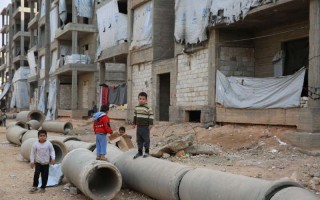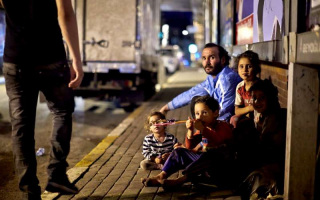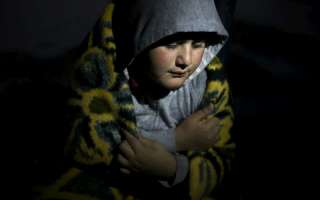As they find safety in west Aleppo, displaced residents from the devastated east of the city describe the violence and shortages that led them to run for their lives.
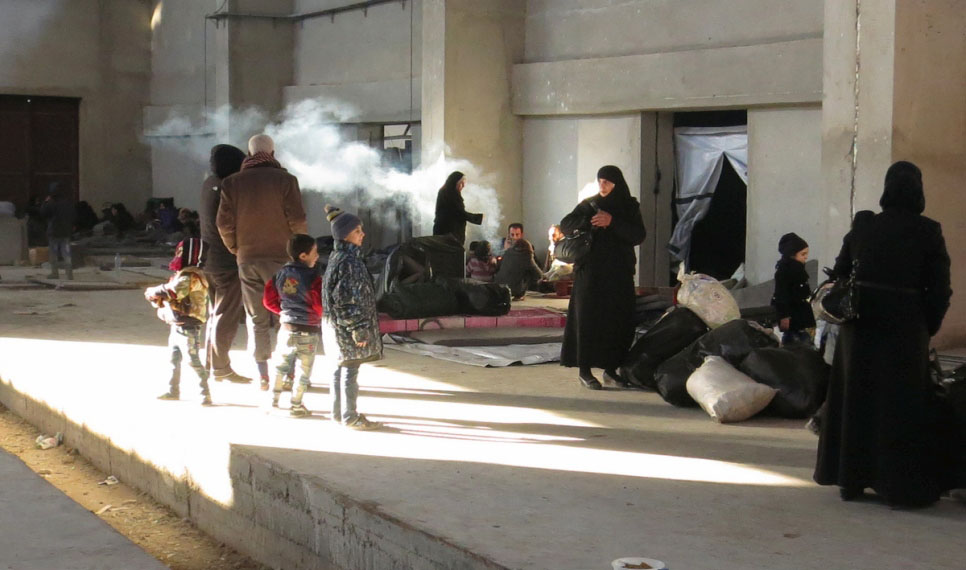
Newly displaced families from east Aleppo reach reach a shelter in Mahalej, Syria. © UNHCR/Mohamed Jertila
ALEPPO, Syria – Hunger finally drove 16-year-old Mohammad and his family to abandon their home in embattled east Aleppo, dodging snipers’ bullets as they ran for their lives.
“We were starving in east Aleppo, we had to leave,” 16-year-old Mohammad told staff from UNHCR, the UN Refugee Agency, after he and several members of his family reached safety in the west of the city.
“We used to be given bags of bread, but then bread stopped and there was just rice. Then there was no rice and the prices of food became so expensive and we could not afford it anymore.”
As they picked there way through the artillery ravaged streets, running from cover to cover, Mohammad’s father became separated, forcing the youngster to choose between looking for him or getting the rest of his family to safety.
“We were starving in east Aleppo, we had to leave.”
They finally made it to the Mahalej cotton factory, a transitional shelter for new arrivals where UNHCR is providing winter clothes, blankets, mattresses, sleeping bags, water and food to those in need. As his six-year-old sister Ahlam – meaning “dreams” in Arabic – played in the background, Mohammad said he still does not know what happened to his father.
Mohammad is among several recently displaced residents of eastern Aleppo who have described the hardship and terror of life in the embattled enclave, as UNHCR repeated calls on all parties to the conflict to ensure the safety of tens of thousands of civilians believed to be still trapped inside the city.
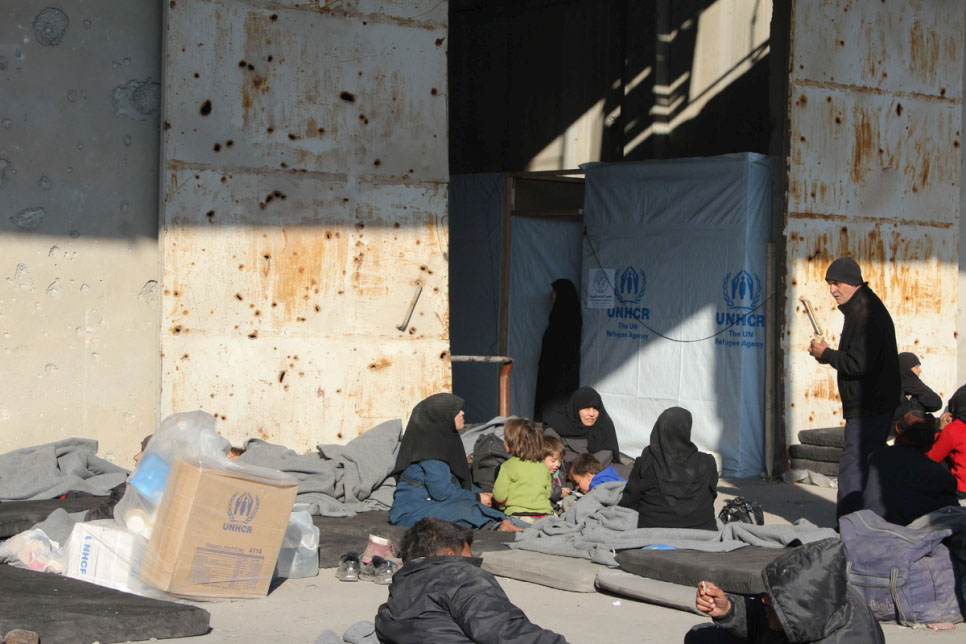
Displaced residents from east Aleppo rest at a centre where UNHCR and other agencies provide shelter and aid including clothing and thermal blankets in west Aleppo, Syria. © UNHCR/Dima Alnaeb
Weeks of intense fighting have taken a high toll on civilians across Aleppo, which prior to Syria’s conflict was the country’s largest city and commercial hub.
The ferocious battle for control of the eastern part of the city, which has been under opposition control for much of the past four years, has forced an estimated 40,000 civilians to seek safety in the government-controlled west in recent weeks, although with accurate numbers hard to gauge the true figure could be far higher.
Men, women and children who have recently arrived at shelters provided harrowing details of suffering weeks of bombardment as well as shortages of food, medical care and fuel for heating. Their ordeal was compounded by the fact that the fighting has prevented humanitarian assistance from reaching the east for the past five months.
“It was very shocking to see our home turned to ruins.”
As well as providing essential relief items, UNHCR is also offering counselling and protection services to traumatized new arrivals, including many children. Bader, 12, who lost his mother to illness before the outbreak of the crisis, sat huddled inside the shelter with his father, step-mother and six siblings.
“I was very cold and very hungry for the past 10 days,” said Bader, his eyes glistening with tears. “We had a house, but it was completely destroyed. It was very shocking to see our home turned to ruins.”
Aziza, a single mother in her late thirties, was crying in a corner of one of the large hangars turned shelters, sitting on the floor with her two young daughters. She told UNHCR staff: “When we arrived here, I realised that we were cursed with displacement. I am very scared of what the future might hold for us, and especially for my daughters.”
UNHCR and its partners are scaling up their humanitarian response in Aleppo to meet the needs of the newly displaced, as well as those previously displaced in western Aleppo. Alongside food, water and protection services, one of the most pressing humanitarian needs is finding secure shelter for the newly displaced.
The onset of winter makes it even more vital that families are kept warm and dry – a small comfort after months spent living in constant fear.
Article originally posted on unhcr.org



